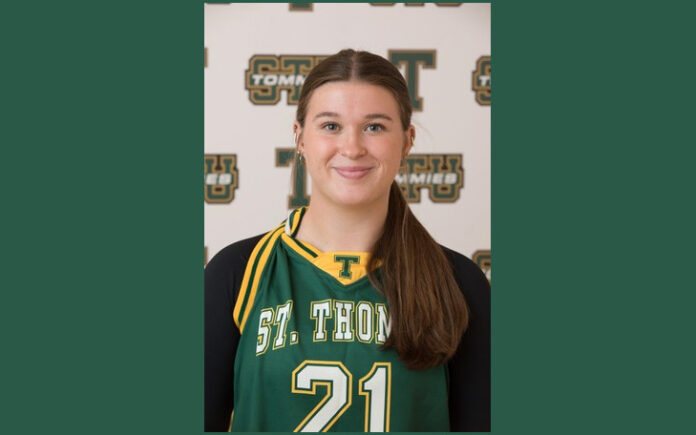From Timbits hockey to St. Thomas University’s Tommies, athletes often find themselves under the guidance of their own parents when practicing a sport. While this coaching dynamic holds the potential for a positive career in sports, it can also be a slippery slope.
Sean Whalen is a former defenseman for Pownal Minor Hockey who is currently studying science and business at the University of Prince Edward Island. He was coached by his father Ron for several years during his hockey career and found the experience to be enjoyable. He said his father treated him just like any other player on the team.
“I know there’s [some people] who have had problems, but personally, I’ve never had problems. It’s always been good,” said Whalen. “I know for some coaches, it’s not always like that, but for me, that’s always been my experience.”
Whalen said nothing changed for him as a player except the odd question about the practice plan or how difficult the practice would be that day.
One of the best memories he has of being coached by his father is winning the Shearwater East Dartmouth Minor Hockey Association title in Halifax last April.
Charlee Connors, a second-year forward on the St. Thomas women’s basketball team, echoed the same sentiments as Whalen, saying that she has not had many difficulties being coached by a parent, particularly at the university level.
However, earlier in her basketball career, she said that she would get negative comments from her teammates about having her dad as a coach.
“In Grade 6, I did have some challenges when I got [some] typical comments like, ‘you’re only on the team just because your dad’s the coach,’” said Connors. “That was definitely challenging to hear, especially at such a young age.”
Her dad, Fred, is now her head coach for the STU women’s basketball team.
“We’re all adults, so I haven’t really had any challenges,” she said.
However, Connors and her father did have to set boundaries to ensure there would not be any difficulties, particularly last season when she was recruited to play for the Tommies.
“Last year, in my first season, I lived at home and one of the big ground rules at home was we don’t talk about basketball,” said Connors. “I could be mad at Fred, but I couldn’t be mad at my dad.”
“If he would yell at me at practice or something and I was upset, I wouldn’t go home and be all mad at him because that was my coach, that wasn’t my dad yelling at me.”
Having a parent act as a coach is a two-way street, as the parent can get just as much enjoyment out of coaching their child. This situation was the case for Ross Burton, who coached his son in hockey for many years. Burton, a native of Stratford, P.E.I., said it was an “utter joy” to coach his son.
“We bonded with hockey since Colton was two years old. I built [him] his first rink and he had an ice rink in the backyard until he was [fifteen] years old,” said Burton.
“We bonded, we talked, we laughed. We cried on the ice too…We had a ton of great memories made and he turned out to be a really great kid.”
Though the experience of coaching his son throughout minor hockey was enjoyable, Burton still thinks there are a few factors that can drive the parent coaching situation in the wrong direction, causing the relationship to become sour.
Some coaches focus too much on their children becoming team captains or playing on the best teams, which Burton thinks is wrong.
“I think the kid should develop what he wants to be,” said Burton. “The parent should accept who he wants to be and the caliber of hockey that he wants to play for. If he wants to play in “A” hockey, let them play in “A” hockey. You don’t want to force the issue.”

